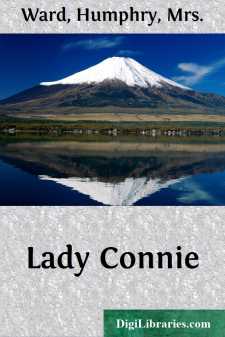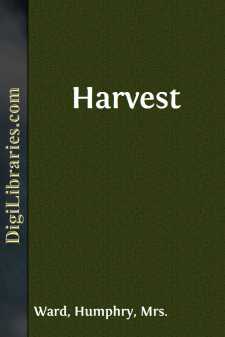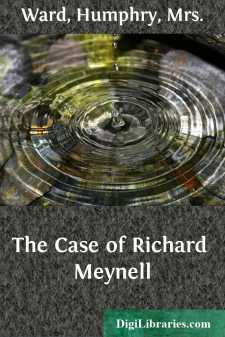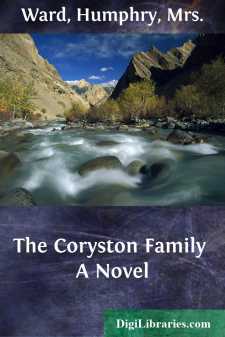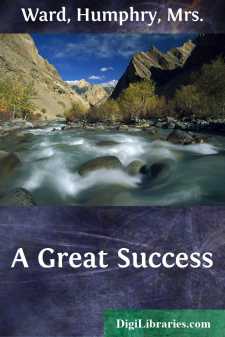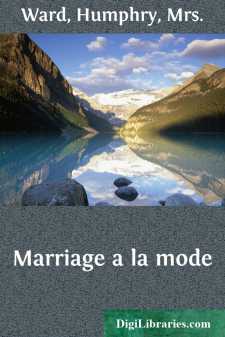Categories
- Antiques & Collectibles 13
- Architecture 36
- Art 48
- Bibles 22
- Biography & Autobiography 813
- Body, Mind & Spirit 142
- Business & Economics 28
- Children's Books 17
- Children's Fiction 14
- Computers 4
- Cooking 94
- Crafts & Hobbies 4
- Drama 346
- Education 46
- Family & Relationships 57
- Fiction 11829
- Games 19
- Gardening 17
- Health & Fitness 34
- History 1377
- House & Home 1
- Humor 147
- Juvenile Fiction 1873
- Juvenile Nonfiction 202
- Language Arts & Disciplines 88
- Law 16
- Literary Collections 686
- Literary Criticism 179
- Mathematics 13
- Medical 41
- Music 40
- Nature 179
- Non-Classifiable 1768
- Performing Arts 7
- Periodicals 1453
- Philosophy 64
- Photography 2
- Poetry 896
- Political Science 203
- Psychology 42
- Reference 154
- Religion 513
- Science 126
- Self-Help 84
- Social Science 81
- Sports & Recreation 34
- Study Aids 3
- Technology & Engineering 59
- Transportation 23
- Travel 463
- True Crime 29
The Testing of Diana Mallory
by: Humphry Ward
Description:
Excerpt
CHAPTER I
The clock in the tower of the village church had just struck the quarter. In the southeast a pale dawn light was beginning to show above the curving hollow of the down wherein the village lay enfolded; but the face of the down itself was still in darkness. Farther to the south, in a stretch of clear night sky hardly touched by the mounting dawn, Venus shone enthroned, so large and brilliant, so near to earth and the spectator, that she held, she pervaded the whole dusky scene, the shadowed fields and wintry woods, as though she were their very soul and voice.
"The Star of Bethlehem!--and Christmas Day!"
Diana Mallory had just drawn back the curtain of her bedroom. Her voice, as she murmured the words, was full of a joyous delight; eagerness and yearning expressed themselves in her bending attitude, her parted lips and eyes intent upon the star.
The panelled room behind her was dimly lit by a solitary candle, just kindled. The faint dawn in front, the flickering candle-light behind, illumined Diana's tall figure, wrapped in a white dressing-gown, her small head and slender neck, the tumbling masses of her dark hair, and the hand holding the curtain. It was a kind and poetic light; but her youth and grace needed no softening.
After the striking of the quarter, the church bell began to ring, with a gentle, yet insistent note which gradually filled the hollows of the village, and echoed along the side of the down. Once or twice the sound was effaced by the rush and roar of a distant train; and once the call of an owl from a wood, a call melancholy and prolonged, was raised as though in rivalry. But the bell held Diana's strained ear throughout its course, till its mild clangor passed into the deeper note of the clock striking the hour, and then all sounds alike died into a profound yet listening silence.
"Eight o'clock! That was for early service," she thought; and there flashed into her mind an image of the old parish church, dimly lit for the Christmas Eucharist, its walls and pillars decorated with ivy and holly, yet austere and cold through all its adornings, with its bare walls and pale windows. She shivered a little, for her youth had been accustomed to churches all color and lights and furnishings--churches of another type and faith. But instantly some warm leaping instinct met the shrinking, and overpowered it. She smote her hands together.
"England!--England!--my own, own country!"
She dropped upon the window-seat half laughing, yet the tears in her eyes. And there, with her face pressed against the glass, she waited while the dawn stole upon the night, while in the park the trees emerged upon the grass white with rime, while on the face of the down thickets and paths became slowly visible, while the first wreaths of smoke began to curl and hover in the frosty air.
Suddenly, on a path which climbed the hill-side till it was lost in the beech wood which crowned the summit, she saw a flock of sheep, and behind them a shepherd boy running from side to side. At the sight, her eyes kindled again. "Nothing changes," she thought, "in this country life!" On the morning of Charles I.'s execution--in the winters and springs when Elizabeth was Queen--while Becket lay dead on Canterbury steps--when Harold was on his way to Senlac--that hill, that path were there--sheep were climbing it, and shepherds were herding them. "It has been so since England began--it will be so when I am dead. We are only shadows that pass. But England lives always--always--and shall live!"
And still, in a trance of feeling, she feasted her eyes on the quiet country scene.
The old house which Diana Mallory had just begun to inhabit stood upon an upland, but it was an upland so surrounded by hills to north and east and south that it seemed rather a close-girt valley, leaned over and sheltered by the downs. Pastures studded with trees sloped away from the house on all sides; the village was hidden from it by boundary woods; only the church tower emerged. From the deep oriel window where she sat Diana could see a projecting wing of the house itself, its mellowed red brick, its Jacobean windows and roof. She could see also a corner of the moat with its running stream, a moat much older than the building it encircled, and beneath her eyes lay a small formal garden planned in the days of John Evelyn--with its fountain and its sundial, and its beds in arabesque. The cold light of December lay upon it all; there was no special beauty in the landscape, and no magnificence in the house or its surroundings. But every detail of what she saw pleased the girl's taste, and satisfied her heart. All the while she was comparing it with other scenes and another landscape, amid which she had lived till now--a monotonous blue sea, mountains scorched and crumbled by the sun, dry palms in hot gardens, roads choked with dust and tormented with a plague of motor-cars, white villas crowded among high walls, a wilderness of hotels, and everywhere a chattering unlovely crowd.
"Thank goodness!--that's done with," she thought--only to fall into a sudden remorse. "Papa--papa!--if you were only here too!"
She pressed her hands to her eyes, which were moist with sudden tears. But the happiness in her heart overcame the pang, sharp and real as it was. Oh! how blessed to have done with the Riviera, and its hybrid empty life, for good and all!--how blessed even, to have done with the Alps and Italy!--how blessed, above all, to have come home!--home into the heart of this English land--warm mother-heart, into which she, stranger and orphan, might creep and be at rest.
The eloquence of her own thoughts possessed her. They flowed on in a warm, mute rhetoric, till suddenly the Comic Spirit was there, and patriotic rapture began to see itself. She, the wanderer, the exile, what did she know of England--or England of her? What did she know of this village even, this valley in which she had pitched her tent? She had taken an old house, because it had pleased her fancy, because it had Tudor gables, pretty panelling, and a sundial. But what natural link had she with it, or with these peasants and countrymen? She had no true roots here. What she had done was mere whim and caprice. She was an alien, like anybody else--like the new men and prowling millionaires, who bought old English properties, moved thereto by a feeling which was none the less snobbish because it was also sentimental.
She drew herself up--rebelling hotly--yet not seeing how to disentangle herself from these associates. And she was still struggling to put herself back in the romantic mood, and to see herself and her experiment anew in the romantic light, when her maid knocked at the door, and distraction entered with letters, and a cup of tea.
An hour later Miss Mallory left her room behind her, and went tripping down the broad oak staircase of Beechcote Manor.
By this time romance was uppermost again, and self-congratulation. She was young--just twenty-two; she was--she knew it--agreeable to look upon; she had as much money as any reasonable woman need want; she had already seen a great deal of the world outside England; and she had fallen headlong in love with this charming old house, and had now, in spite of various difficulties, managed to possess herself of it, and plant her life in it. Full of ghosts it might be; but she was its living mistress henceforth; nor was it either ridiculous or snobbish that she should love it and exult in it--quite the contrary. And she paused on the slippery stairs, to admire the old panelled hall below, the play of wintry sunlight on the oaken surfaces she herself had rescued from desecrating paint, and the effect of some old Persian rugs, which had only arrived from London the night before, on the dark polished boards. For Diana, there were two joys connected with the old house: the joy of entering in, a stranger and conqueror, on its guarded and matured beauty, and the joy of adding to that beauty by a deft modernness. Very deft, and tender, and skilful it must be. But no one could say that time-worn Persian rugs, with their iridescent blue and greens and rose reds--or old Italian damask and cut-velvet from Genoa, or Florence, or Venice--were out of harmony with the charming Jacobean rooms. It was the horrible furniture of the Vavasours, the ancestral possessors of the place, which had been an offence and a disfigurement. In moving it out and replacing it, Diana felt that she had become the spiritual child of the old house, in spite of her alien blood. There is a kinship not of the flesh; and it thrilled all through her.
But just as her pause of daily homage to the place in which she found herself was over, and she was about to run down the remaining stairs to the dining-room, a new thought delayed her for a moment by the staircase window--the thought of a lady who would no doubt be waiting for her at the breakfast-table.
Mrs. Colwood, Miss Mallory's new chaperon and companion, had arrived the night before, on Christmas Eve. She had appeared just in time for dinner, and the two ladies had spent the evening together. Diana's first impressions had been pleasant--yes, certainly, pleasant; though Mrs. Colwood had been shy, and Diana still more so. There could be no question but that Mrs. Colwood was refined, intelligent, and attractive. Her gentle, almost childish looks appealed for her. So did her deep black, and the story which explained it. Diana had heard of her from a friend in Rome, where Mrs. Colwood's husband, a young Indian Civil servant, had died of fever and lung mischief, on his way to England for a long sick leave and where the little widow had touched the hearts of all who came in contact with her.
Diana thought, with one of her ready compunctions, that she had not been expansive enough the night before. She ran down-stairs, determined to make Mrs. Colwood feel at home at once.
When she entered the dining-room the new companion was standing beside the window looking out upon the formal garden and the lawn beyond it. Her attitude was a little drooping, and as she turned to greet her hostess and employer, Diana's quick eyes seemed to perceive a trace of recent tears on the small face. The girl was deeply touched, though she made no sign. Poor little thing! A widow, and childless, in a strange place.
Mrs. Colwood, however, showed no further melancholy. She was full of admiration for the beauty of the frosty morning, the trees touched with rime, the browns and purples of the distant woods. She spoke shyly, but winningly, of the comfort of her room, and the thoughtfulness with which Miss Mallory had arranged it; she could not say enough of the picturesqueness of the house. Yet there was nothing fulsome in her praise. She had the gift which makes the saying of sweet and flattering things appear the merest simplicity. They escaped her whether she would or no--that at least was the impression; and Diana found it agreeable. So agreeable that before they had been ten minutes at table Miss Mallory, in response, was conscious on her own part of an unusually strong wish to please her new companion--to make a good effect. Diana, indeed, was naturally governed by the wish to please. She desired above all things to be liked--that is, if she could not be loved. Mrs. Colwood brought with her a warm and favoring atmosphere. Diana unfolded.
In the course of this first exploratory conversation, it appeared that the two ladies had many experiences in common. Mrs. Colwood had been two years, her two short years of married life, in India; Diana had travelled there with her father. Also, as a girl, Mrs. Colwood had spent a winter at Cannes, and another at Santa Margherita. Diana expressed with vehemence her weariness of the Riviera; but the fact that Mrs. Colwood differed from her led to all the more conversation.
"My father would never come home," sighed Diana. "He hated the English climate, even in summer. Every year I used to beg him to let us go to England. But he never would. We lived abroad, first, I suppose, for his health, and then--I can't explain it. Perhaps he thought he had been so long away he would find no old friends left. And indeed so many of them had died. But whenever I talked of it he began to look old and ill. So I never could press it--never!"
The girl's voice fell to a lower note--musical, and full of memory. Mrs. Colwood noticed the quality of it.
"Of course if my mother had lived," said Diana, in the same tone, "it would have been different."
"But she died when you were a child?"
"Eighteen years ago. I can just remember it. We were in London then. Afterwards father took me abroad, and we never came back. Oh! the waste of all those years!"
"Waste?" Mrs. Colwood probed the phrase a little. Diana insisted, first with warmth, and then with an eloquence that startled her companion, that for an Englishwoman to be brought up outside England, away from country and countrymen, was to waste and forego a hundred precious things that might have been gathered up. "I used to be ashamed when I talked to English people. Not that we saw many. We lived for years and years at a little villa near Rapallo, and in the summer we used to go up into the mountains, away from everybody. But after we came back from a long tour, we lived for a time at a hotel in Mentone--our own little house was let--and I used to talk to people there--though papa never liked making friends. And I made ridiculous mistakes about English things--and they'd laugh. But one can't know--unless one has lived--has breathed in a country, from one's birth. That's what I've lost."
Mrs. Colwood demurred.
"Think of the people who wish they had grown up without ever reading or hearing about the Bible, so that they might read it for the first time, when they could really understand it. You feel England all the more intensely now because you come fresh to her."
Diana sprang up, with a change of face--half laugh, half frown.
"Yes, I feel her! Above all, I feel her enemies!"
She let in her dog, a fine collie, who was scratching at the door. As she stood before the fire, holding up a biscuit for him to jump at, she turned a red and conscious face towards her companion. The fire in the eyes, the smile on the lip seemed to say:
"There!--now we have come to it. This is my passion--my hobby--this is me!"
"Her enemies! You are political?"
"Desperately!"
"A Tory?"
"Fanatical. But that's only part of it, 'What should they know of England, that only England know!'"
Miss Mallory threw back her head with a gesture that became it.
"Ah, I see--an Imperialist?"
Diana nodded, smiling. She had seated herself in a chair by the fireside. Her dog's head was on her knees, and one of her slender hands rested on the black and tan. Mrs. Colwood admired the picture. Miss Mallory's sloping shoulders and long waist were well shown by her simple dress of black and closely fitting serge. Her head crowned and piled with curly black hair, carried itself with an amazing self-possession and pride, which was yet all feminine. This young woman might talk politics, thought her new friend; no male man would call her prater, while she bore herself with that air. Her eyes--the chaperon noticed it for the first time--owed some of their remarkable intensity, no doubt, to short sight. They were large, finely colored and thickly fringed, but their slightly veiled concentration suggested an habitual, though quite unconscious struggle to see--with that clearness which the mind behind demanded of them. The complexion was a clear brunette, the cheeks rosy; the nose was slightly tilted, the mouth fresh and beautiful though large; and the face of a lovely oval. Altogether, an aspect of rich and glowing youth: no perfect beauty; but something arresting, ardent--charged, perhaps over-charged, with personality. Mrs. Colwood said to herself that life at Beechcote would be no stagnant pool.
While they lingered in the drawing-room before church, she kept Diana talking. It seemed that Miss Mallory had seen Egypt, India, and Canada, in the course of her last two years of life with her father. Their travels had spread over more than a year; and Diana had brought Mr. Mallory back to the Riviera, only, it appeared, to die, after some eight months of illness. But in securing to her that year of travel, her father had bestowed his last and best gift upon her. Aided by his affection, and stimulated by his knowledge, her mind and character had rapidly developed. And, as through a natural outlet, all her starved devotion for the England she had never known, had spent itself upon the Englands she found beyond the seas; upon the hard-worked soldiers and civilians in lonely Indian stations, upon the captains of English ships, upon the pioneers of Canadian fields and railways; upon England, in fact, as the arbiter of oriental faiths--the wrestler with the desert--the mother and maker of new states. A passion for the work of her race beyond these narrow seas--a passion of sympathy, which was also a passion of antagonism, since every phase of that work, according to Miss Mallory, had been dogged by the hate and calumny of base minds--expressed itself through her charming mouth, with a quite astonishing fluency. Mrs. Colwood's mind moved uneasily. She had expected an orphan girl, ignorant of the world, whom she might mother, and perhaps mould. She found a young Egeria, talking politics with raised color and a throbbing voice, as other girls might talk of lovers or chiffons. Egeria's companion secretly and with some alarm reviewed her own equipment in these directions. Miss Mallory discoursed of India. Mrs. Colwood had lived in it. But her husband had entered the Indian Civil Service, simply in order that he might have money enough to marry her. And during their short time together, they had probably been more keenly alive to the depreciation of the rupee than to ideas of England's imperial mission. But Herbert had done his duty, of course he had. Once or twice as Miss Mallory talked the little widow's eyes filled with tears again unseen. The Indian names Diana threw so proudly into air were, for her companion, symbols of heart-break and death. But she played her part; and her comments and interjections were all that was necessary to keep the talk flowing.
In the midst of it voices were suddenly heard outside. Diana started.
"Carols!" she said, with flushing cheeks. "The first time I have heard them in England itself!"
She flew to the hall, and threw the door open. A handful of children appeared shouting "Good King Wenceslas" in a hideous variety of keys. Miss Mallory heard them with enthusiasm; then turned to the butler behind her.
"Give them a shilling, please, Brown."
A quick change passed over the countenance of the man addressed.
"Lady Emily, ma'am, never gave more than three-pence."
This stately person had formerly served the Vavasours, and was much inclined to let his present mistress know it.
Diana looked disappointed, but submissive.
"Oh, very well, Brown--I don't want to alter any of the old ways. But I hear the choir will come up to-night. Now they must have five shillings--and supper, please, Brown."
Brown drew himself up a little more stiffly.
"Lady Emily always gave 'em supper, ma'am, but, begging your pardon, she didn't hold at all with giving 'em money."
"Oh, I don't care!" said Miss Mallory, hastily. "I'm sure they'll like it, Brown! Five shillings, please."
Brown withdrew, and Diana, with a laughing




